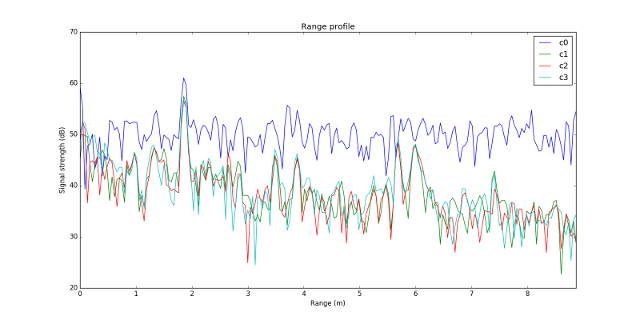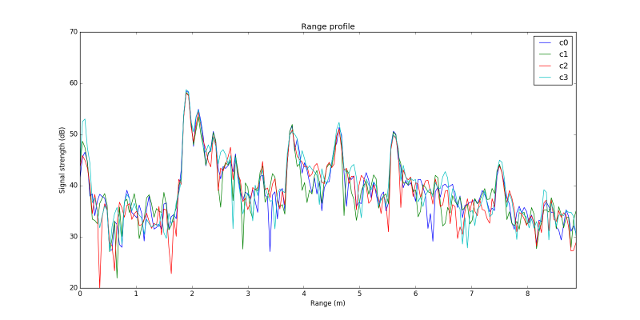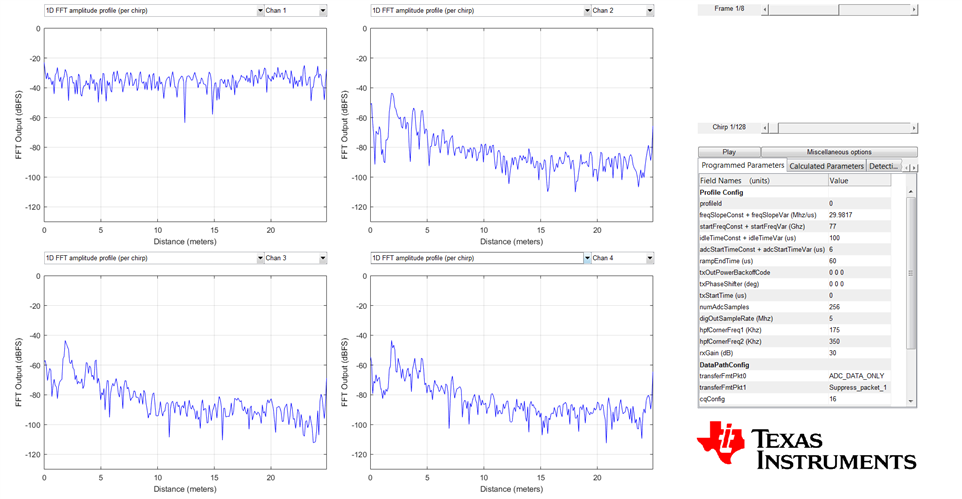Other Parts Discussed in Thread: DCA1000EVM, AWR1443
Hi,
we recently purchased 2 AWR1443BOOST EVMs (ES3.0 silicon).
We ported our software to one of them (we previously used ES2.0 boards), but we couldn't make any sense of the data that we collected. After lots of debugging, we noticed that the signal from the first RX channel looked very suspicious. When we tried the second board, it worked just fine. This seems to confirm that there is problem with the first board.
To illustrate the issue, I've made some range profile plots for the 2 boards. The first board gives me something like this:
The signal of the first channel (c0) is significantly higher that of the other channels over most of the range. Moreover, the value does not seems to decrease with distance, as one would expect.
The second board gives me this result:
Here the signals for the 4 antennas are much more similar, as one would expect.
Is there anything that could explain this behavior of our first board, other than a hardware issue on the first channel? Or is the board defective?
Best regards,
Eddy







